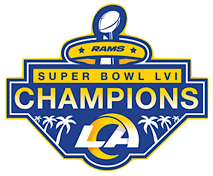PFF gave out A's for nearly half the teams in the league this year.
5 A+ grades and
9 A or A- grades
But we know the truth don't we. Gotta pick one though. 5 years from now who will be that team with the best haul from this class?
You should know by now that I'm an unapologetic Brad Holmes, Jared Goff and Detroit Lions fan (unless they meet the Rams in the playoffs.) It's fun to watch this historic midwestern franchise led by a former Rams QB come back.
Whether they had the best draft I can't say, but it was a damn good one. Nevertheless, they deserve top marks just for defying received wisdom-- just as McVay and Snead have done for years. This was highlighted by Brad Holmes serenely declaring "frankly we don't care [what they think]" after post Round 1 howls of outrage from the analytics and talking head group think crowd.
In fact it was, as one news report aptly called it, "A master class in resource management."
Revenge on the Nerds
One of the fundamental tenets of football analytics is that running backs and linebackers are bad investments in the first round of the draft: There’s a surplus of talent at those positions, running back careers are short and linebackers have a limited role in the pass-happy modern N.F.L.
The Lions, coached by Campbell, the archetypal tough guy, gave the analytics community an atomic wedgie in the first round by drafting both Alabama running back Jahmyr Gibbs and Iowa linebacker Jack Campbell (no relation to Dan). Gibbs was not even the first running back selected — the Atlanta Falcons chose Bijan Robinson of Texas eighth overall — and Jack Campbell is the type of 249-pound run-stopping sledgehammer that has been on the verge of extinction for years.
The selection of Iowa tight end Sam LaPorta early in the second round — tight end is considered another position of low marginal value — further fueled the analytics nerds’ rage.
Tempers cooled when the Lions selected Alabama defensive back Brian Branch, a first-round talent according to many experts, with the 45th overall pick. The team then selected Tennessee quarterback Hendon Hooker with the 68th pick. Hooker might have been a first-round selection if he were not already older than many N.F.L. starters (he turned 25 in January) and if he had not torn an anterior cruciate ligament in November.
Suddenly, the Lions’ efforts looked less like a tipsy father-in-law’s fantasy draft and more like a master class in resource management.
A second dictate of football analytics stresses that scouting is so imprecise that acquiring an abundance of extra draft picks is a far better tactic than trading up to target one coveted prospect. The Lions received a bundle of picks from the Los Angeles Rams
when they traded away quarterback Matthew Stafford in 2021, and they acquired an extra second-round pick from the Arizona Cardinals by trading down before selecting Gibbs.
As a result, they came away from Friday night with several potential starters and a possible franchise quarterback. They just did so in an unusual order.








